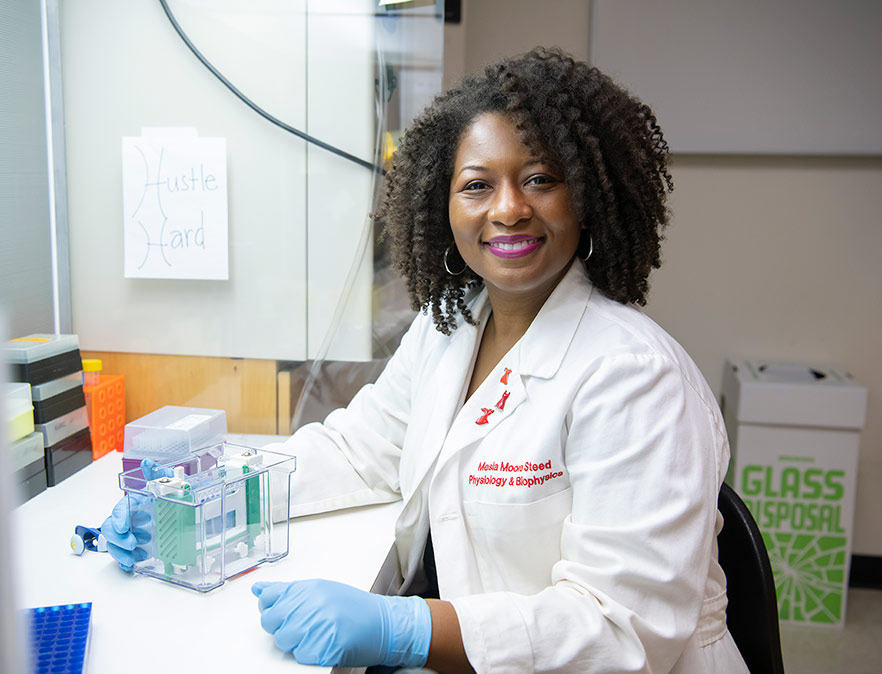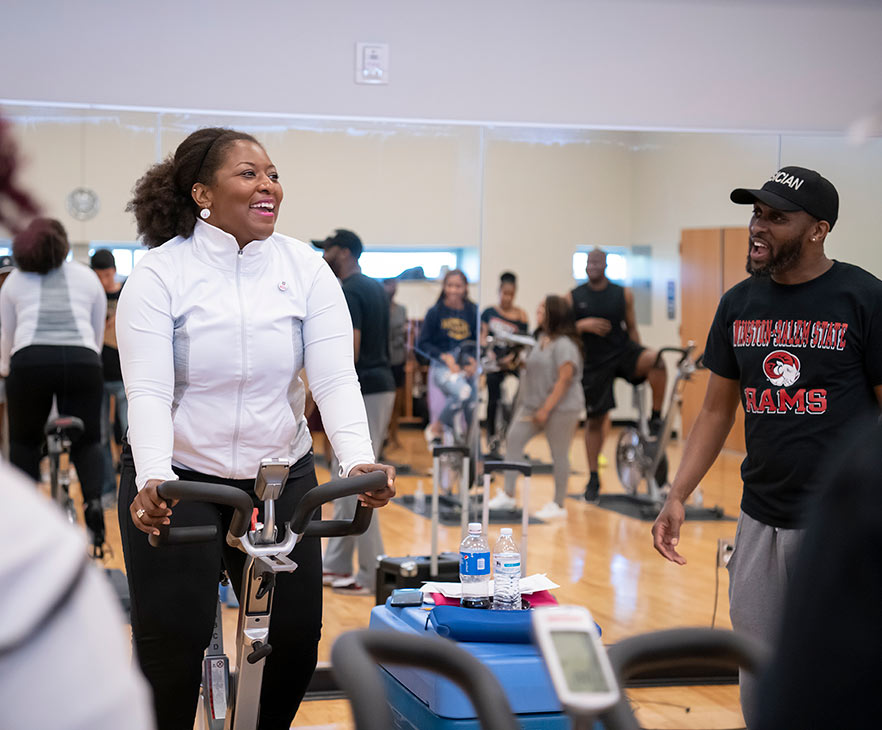Research for the heart, from the heart

Dr. Mesia Steed, associate professor of cell and molecular biology at Winston-Salem State University (WSSU), has always had an interest in how the human body works.
Coming from a family of healthcare providers, she knew she wanted to answer the question, “Why?” However, it wasn’t until she became aware of her family’s history of heart disease that heart health and answering “Why” became more personal.
“Growing up, I would look through the medical books around my house to discover how the body works,” says Steed. “I just took that curiosity and used it to transition into what I was studying at each step in my academic career.”
Steed, whose terminal degree is in physiology and biophysics, found her niche for understanding the human body through research during her undergraduate years at the University of Louisville.
For most of her career, Steed has studied the vasculature and how it is the conduit to getting everything that needs dispersing throughout the body. Her current research focus is on an enzyme called Matrix Metalloproteinases (MMPs), specifically MMP 2, and the role it plays in heart disease and heart disease prevention.
According to the U.S. Department of Health and Human Services, heart disease is a disorder of the blood vessels of the heart that can lead to a heart attack. A heart attack usually happens when an artery becomes blocked, preventing oxygen and nutrients from getting to the heart.
MMPs are a family of proteolytic zinc-containing enzymes involved in the physiological as well as in the pathological processes in the human body. These enzymes function outside of the cell environment to degrade connective tissues.
Observing over a period of time, Steed detects the elevation of these enzymes to pinpoint the optimal time for treatment. When explaining MMPs to her students, she uses an arcade game analogy.
“When you talk about the architecture of the heart and this vasculature, it’s a strong structure,” she says. “If you have a condition that is challenging these areas, you can imagine how they will eventually begin to fail. These MMPs are much like Pac-Man. This Pac-Man gets released in this large quantity and starts to eat away at this infrastructure, weakening the foundation, so the structure begins to fail.”
If someone has hypertension, diabetes or high cholesterol, understanding the condition and finding the best time to treat can minimize the effect of Pac-Man, so that the structure can either heal itself or slow the progression of the disease, she says.
Steed is an avid cyclist, having taught classes in the university’s recreation center. She has also begun a new study regarding cycling and heart health.
“Diet alone is not going to correct the heart issue; you have to work that muscle,” she says.
“What we’ve found is that exercise reduces the release of threatening MMPs. Even though I didn’t go into exercise looking at ways in which it would mediate a decrease in this enzyme, the research supports that it does.”
Steed’s research is not only for her personal benefit. She also uses this research to inform her students.
WSSU’s student population is comprised of mostly African American women. Heart disease disproportionately affects African American women than other races of women. They are also more likely to die of heart disease at a young age.
“We are more affected than other races of women and it is driven by a strong family history of high blood pressure and heart disease,” says Steed. “That encouraged me to research my family.”
“I’m really trying to change the lives of everyone,” she says. “Even though I’m not teaching heart disease in my classes, I’m teaching basic biology that they can apply to any health condition.”
Having students in the laboratory as partners is very important to Steed. She believes that it’s not just an opportunity for the student, but that it advances the field.
“Once you bring students on board, you are training them how to think like a scientist, how to think beyond themselves and say, how am I going to help those around me, especially when it comes to heart health,” says Steed. “Even one small discovery is helpful.”

